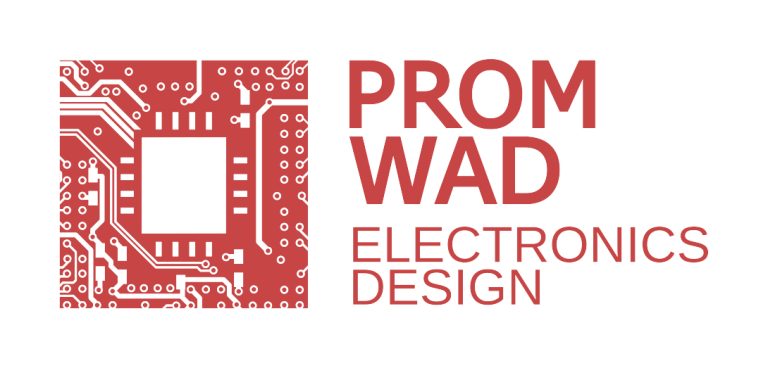In today’s fast-paced technological landscape, hardware design has emerged as a vital discipline that bridges the gap between concept and reality.
As industries continue to evolve, the demand for innovative and efficient hardware solutions has never been higher.
This blog will explore the fundamental aspects of hardware design, its significance in various sectors, and how Promwad, a leading electronic design company, plays a pivotal role in this dynamic field.
What Is Hardware Design?
Hardware design involves the process of creating and developing physical components and systems that enable the operation of electronic devices.
This encompasses a wide range of activities, including circuit design, printed circuit board (PCB) layout, component selection, and the integration of hardware with software.
Effective hardware design not only ensures that a product functions as intended but also optimizes for factors like performance, cost, and manufacturability.
At its core, hardware design requires a combination of creativity and technical expertise. Designers must consider various parameters, including power consumption, thermal management, and compliance with industry standards, while ensuring the final product meets user needs.
The Importance of Hardware Design in Various Industries
Hardware design is crucial across multiple sectors, influencing everything from consumer electronics to medical devices.
In the consumer electronics industry, effective hardware design enables the creation of compact, powerful devices that enhance user experience.
The rapid advancement of technology demands that designers stay ahead of trends to ensure products remain competitive.
In the medical sector, hardware design plays a critical role in developing devices that save lives. From diagnostic tools to patient monitoring systems, the reliability and accuracy of these products are paramount.
Here, rigorous testing and validation processes are essential, ensuring that devices operate under various conditions and comply with strict regulatory requirements.
Moreover, in the automotive and aerospace industries, hardware design contributes to the development of advanced systems such as electric vehicles and avionics.
The integration of complex systems necessitates a thorough understanding of hardware-software interaction, making innovative design a priority.
The Hardware Design Process
The hardware design process typically involves several key stages:
1. Concept Development
The journey begins with concept development, where designers collaborate with clients to understand their vision and objectives.
This phase includes brainstorming sessions, market research, and feasibility studies, which help refine the initial idea and ensure it meets user needs.
2. Schematic Design
Once the concept is established, designers move on to creating schematic diagrams that outline the electrical connections of the components.
This step is crucial for defining how the various elements of the system will interact and ensuring that the design is technically sound.
3. PCB Layout
The next stage is PCB layout, where designers arrange the components on the board and route the electrical connections. This phase is vital for optimizing signal integrity and minimizing interference, ensuring the product operates efficiently.
4. Prototyping and Testing
Prototyping is a critical step that allows designers to create a physical representation of the product. This iterative process helps identify issues and refine the design based on real-world testing.
Thorough testing and validation ensure that the hardware meets performance specifications and reliability standards.
5. Production and Compliance
Once testing is successful, the design moves into production. Here, electronic design companies must ensure that the product adheres to industry standards and regulatory requirements, a process that often involves collaboration with certification bodies.
Promwad: Pioneering Hardware Design Solutions
Promwad is a leading electronic design company that specializes in hardware design and development.
With a strong focus on innovation, Promwad offers a comprehensive range of services, including product conceptualization, circuit design, PCB layout, firmware development, prototyping, and testing.
Expertise in Diverse Industries
Promwad has extensive experience working with clients across various sectors, including consumer electronics, automotive, telecommunications, and healthcare.
Their team of experts collaborates closely with clients to develop tailored solutions that address specific challenges and requirements.
By leveraging their deep technical knowledge and industry insights, Promwad ensures that products not only meet but exceed market expectations.
Commitment to Quality and Innovation
One of the hallmarks of Promwad’s approach is its commitment to quality and innovation. The company utilizes advanced tools and methodologies in hardware design, ensuring that each product is built to last and performs reliably.
Their rigorous testing processes help identify potential issues early, allowing for timely adjustments that enhance overall product quality.
Emphasis on Sustainability
In today’s environmentally conscious world, Promwad recognizes the importance of sustainable practices in hardware design.
The company is dedicated to using eco-friendly materials and energy-efficient design principles, aligning with the growing demand for green technology solutions.
By integrating sustainability into their design processes, Promwad not only meets regulatory requirements but also contributes to a healthier planet.
The Future of Hardware Design
As technology continues to advance, the field of hardware design is poised for exciting developments.
Emerging trends such as the Internet of Things (IoT), artificial intelligence (AI), and edge computing are transforming the landscape, requiring designers to innovate continuously.
Companies like Promwad are at the forefront of these changes, leveraging new technologies to create smarter, more connected products.
Additionally, the demand for customized hardware solutions is on the rise. As businesses seek to differentiate themselves in a competitive market, hardware design companies must adapt by offering flexible, scalable solutions that meet unique customer needs.
Conclusion
Hardware design is a vital aspect of modern technology that influences a wide range of industries.
As the demand for innovative, reliable, and sustainable products continues to grow, the role of electronic design companies like Promwad becomes increasingly significant.
By offering comprehensive design solutions and embracing new technologies, Promwad is helping businesses navigate the complexities of hardware design and bring their ideas to life.
Whether you’re looking to develop consumer electronics, medical devices, or advanced automotive systems, partnering with an experienced electronic design company can make all the difference in achieving your vision.
